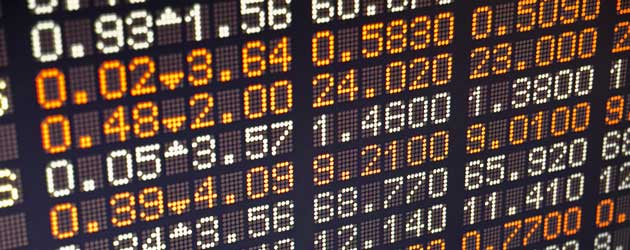
Pound Sterling (GBP)
Despite the lack of domestic data releases, yesterday was a good day for Sterling. The Pound held its ground versus most of the majors and rose fractionally against some. The Office for National Statistics (ONS) announced a revision to its previous UK Gross Domestic Product (GDP) result for the 2008-2009 period. The impact of the financial crisis was downgraded to show that Britain only actually shrunk by -4.6%, compared to the previous estimates of -6.0%, over the two year period. Regardless of yesterday’s revisions, the average rate of GDP growth in the UK between 1998 and 2009 stands at 2.2%.
Today’s Bank of England (BoE) Inflation Report will give a much better indication of how soon the BoE will decide to raise interest rates. The average earnings figure has seen a dramatic drop from the forecast figure which is likely to decrease the chances of a BoE rate hike before the close of 2014. Unemployment data has stayed true to forecast, but the poor result pertaining to weekly earnings will likely overshadow the positive numbers.
Euro (EUR)
Yesterday was a difficult day for the Euro. A shockingly weak German ZEW survey for Economic Sentiment pushed Sterling ahead by around 0.4 cents against the Euro. The current conditions survey struck a 7-month low of 44.3, whilst the more widely watched Eurozone economic sentiment indicator plummeted to a 20-month low of 8.6. The ZEW Centre for Economic and Social Research connected waning investor confidence in the currency bloc’s largest economy with ongoing geopolitical tensions. There seems to be very little light at the end of the tunnel for the Germans; later this week the German GDP figure is forecast at -0.1% for the second quarter. This is a bleak turnaround from the +0.8% recorded in the first quarter. European growth prospects for the second half of the year hang in the balance as the time of a resolution for the situation in Eastern Ukraine remains unknown.
US Dollar (USD)
In anticipation of today’s key UK labour market report, the Pound to US Dollar exchange rate hovered close to technical resistance at 1.68 for the majority of yesterday’s session. Sterling hit a fresh 2-month low yesterday morning which indicates that the GBP/USD’s yearlong upswing has reached a plateau over the past five weeks. There is, however, potential for another upward surge if BoE rate hike speculation increases following the morning’s packed economic calendar. The latest figure from UK average weekly wages, which has dropped dramatically from forecast, makes the rate hike increasingly unlikely.
For GBP/USD to trade higher the BoE’s quarterly inflation report needs to avoid any dovish aspects. However the poor UK data released today will make BoE’s justification to hike rates close to nonexistent.
Canadian Dollar (CAD)
Yesterday saw very little direct economic stimulus for the Canadian Dollar and, as a result, the Pound managed to gain around a third of a cent. The move seems to have been a correction following Monday’s steep GBP/CAD declination. Expect the ‘Loonie’ (CAD) to mirror other currencies performance against the Pound today following the less-than-ideal UK labour market data.
Australian Dollar (AUD)
The Australian Dollar was bolstered yesterday after a 4-year high National Australia Bank (NAB) business conditions survey. NAB Chief Economist Alan Oster related the upbeat construction and wholesale sectors figures to the positive report. He did mention, however, that soft job creation was still of concern. The ongoing geopolitical issues across the globe saw traders trending toward risk aversion, which softened the ‘Aussie’ (AUD) considerably against most currencies yesterday.
New Zealand Dollar (NZD)
Yesterday the GBP/NZD exchange rate appreciated by just over half a cent. This was due to poor figures pertaining to the New Zealand house price index, measured by the Real Estate Institute of New Zealand (REINZ), which revealed a drop of -0.7% in July. Adding to the woes of the ‘Kiwi’ (NZD) was the result from the annual REINZ house sales index, which showed a declination of -13.0%.
South African Rand (ZAR)
The South African Rand weakened yesterday amidst growing geopolitical issues. The lack of domestic data saw traders trending towards risk aversion and safe-haven currencies.
The GBP/ZAR exchange rate is likely to surge today following less-than-ideal UK labour market data.

Comments are closed.